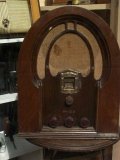Radio Drama Techniques - training as a radio drama director (+ acting, technical, scripting)
SOME OPENING IDEAS - sounds promising! Step by step instruction.
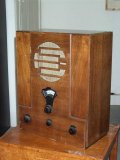
| Of course, I can't teach HOW TO direct radio drama, or how to act, or write, or post-production. |
| I pass on advice, experience and short-cuts. If there were rules, I could display them here, and anyone could be a radio drama director etc. |
| Here is my advice. And after that, you use your judgement and a lot of work. |
| You have to do a lot of listening, and you have to discover styles and sounds for yourself. |
| LISTEN to all those marvellous plays available from BBC broadcasts and the BBC web site. Listen to all you can find on the Internet from around the world. Find what plays are being broadcast around you. |
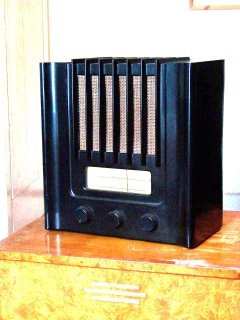
FIRST QUESTIONS - 'HOW DO I'? (directing, acting, radio studio or not)
| LISTEN to the sounds of the living world around you, and listen to talk - to how people talk - to all sorts of talk. |
| LISTEN to all sorts of fiction sounds, and to the sound-track of films. THIS WILL GIVE YOU LOTS OF IDEAS. |
| Filmic - styles of radio drama directing and post-production which creatively relate to film |
| Sound is rapidly changing in our world. Sound design is speeding up. Digital sound technology means that you can do it - direct, act, script, post-production - everything. |
| So many radio drama skills are 'invisible' and that is why they are so successful. This web site will open your ears. |
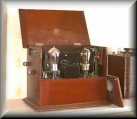
|
You are creating a series of sound pictures in scene after scene, and within scenes. You have to think about the possibilities of sound and of how people listen. |
|
You have to arrange the sound events within each sound picture carefully. You have to follow the logic of the story and the picture. |
| You have to think about perspective - as in a painting - but this is a series of moving pictures in a series of sound pictures. These pictures are usually arranged around a 'sound centre'. We call the elements 'sound events' - dialogue, background atmos, sound effects. |
|
Radio is a miniature art. You are creative sometimes with much more precise means than on television or on stage.
|
| Radio drama dialogue is much more than the words on the page |
|
Radio directors seem to divide into the word lobby or the sound brigade. Word lobby - radio plays that are packed with words - but you use silences and music too.
|
|
Often you keep the words in the foreground and the location (usually the atmos) balanced well into the background. (Termed STANDARD PRODUCTION) |
|
You may want to be more adventurous at times. You may want to express some of the mix of sound events in the Lifeworld - in the soundscapes in which we live. You may want to be influenced by the 'filmic' - the enormous amount of production that goes into the film sound track. You may want scenes which are 'filmic' radio drama production. |
|
The way we listen is always changing - in the digital world. We listen with 'super-ears' now. We are 'super-listeners' now - in cinemas we sit within Dolby six or eight channels. Eminem has small radio drama scenes in his CDs.
|
|
The radio drama director fills the role of ideal 'ears', selecting, focusing and designing. The audience actively play their part in the construction of the 'second radio play' in their heads. |
| The radio drama director creates a sound paradise for the listener - in which every sound event ideally has its place, and the fictional world operates by sound alone. |
| Radio drama is a miniaturist art often. It is about subtraction, rather than addition. |
See THREE PHASES OF PRODUCTION
Now have a look at a great site: Sound Effects - The Art of Noise - Tony Palermo's Sound Effects Closet at http://www.ruyasonic.com/sfx_closet.htm
STEP 1 - and on to STEP 2 - Here is how you start - at the beginning of each radio scene.
Back to FIRST QUESTIONS - 'HOW DO I'? (directing, acting, radio studio or not?, script)
If for broadcast, you probably should respect BBC Editorial Guidelines
|
|
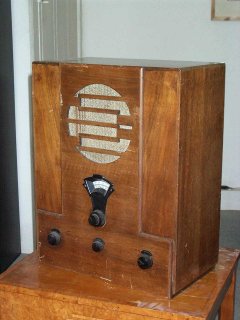 Sound brigade - you
use sound scenery and emphasise the world of sound.
Sound brigade - you
use sound scenery and emphasise the world of sound.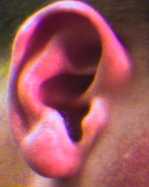 Radio drama productions
are hard put to play 'catch up'. Expectations of sound fictions
are always changing.
Radio drama productions
are hard put to play 'catch up'. Expectations of sound fictions
are always changing.